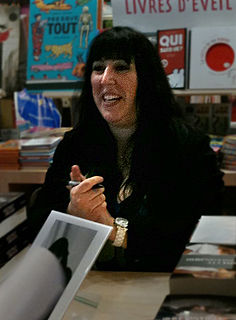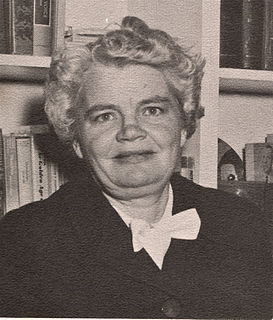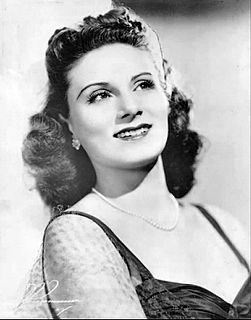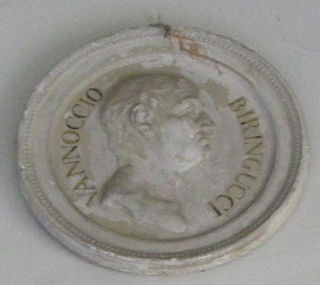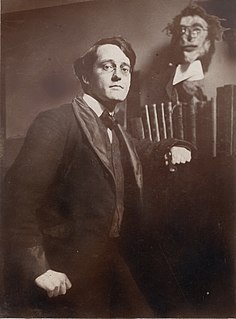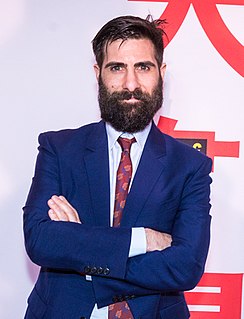A Quote by Wilhelm Dilthey
To attempt this would be like seeing without eyes or directing the gaze of knowledge behind one's own eye. Modern science can acknowledge no other than this epistemological stand-point.
Related Quotes
Knowledge signifies things known. Where there are no things known, there is no knowledge. Where there are no things to be known, there can be no knowledge. We have observed that every science, that is, every branch of knowledge, is compounded of certain facts, of which our sensations furnish the evidence. Where no such evidence is supplied, we are without data; we are without first premises; and when, without these, we attempt to build up a science, we do as those who raise edifices without foundations. And what do such builders construct? Castles in the air.
Industrial Society is not merely one containing 'industry,' large-scale productive units capable of supplying man's material needs in a way which can eliminate poverty: it is also a society in which knowledge plays a part wholly different from that which it played in earlier social forms, and which indeed possesses a quite different type of knowledge. Modern science is inconceivable outside an industrial society: but modern industrial society is equally inconceivable without modern science. Roughly, science is the mode of cognition of industrial society, and industry is the ecology of science.
I stand firm behind the belief that, for me, songwriting isn't something that I do or command, it happens to me. I can either choose to stop and acknowledge it, or put it off and hope that it won't fade away. 'That Wasn't Me' is no exception - it came together more quickly than any other song I have ever constructed on my own.
There was a danger whenever I was on home ground. It was the danger of seeing my life through other eyes than my own. Seeing it as an ever-increasing roll of words like barbed wire, intricate, bewildering, uncomforting—set against the rich productions, the food, flowers, and knitted garments, of other women’s domesticity. It became harder to say that it was worth the trouble.
It is true that neither the ancient wisdoms nor the modern sciences are complete in themselves. They do not stand alone. They call for one another. Wisdom without science is unable to penetrate the full sapiential meaning of the created and the material cosmos. Science without wisdom leaves man enslaved to a world of unrelated objects in which there is no way of discovering (or creating) order and deep significance in man's own pointless existence. (p. 4)
I've never thought of you like that,' said Christopher. 'How could I? If you were any other woman, I could tell you I loved you, easily enough, but not you-- because you've always seemed to me like a part of myself, and it would be like saying I loved my own eyes or my own mind. But have you ever thought of what it would be to have to live without your mind or your eyes, Kate? To be mad? Or blind?
With photography, everything is in the eye and these days I feel young photographers are missing the point a bit. People always ask about cameras but it doesn't matter what camera you have. You can have the most modern camera in the world but if you don't have an eye, the camera is worthless. Young people know more about modern cameras and lighting than I do. When I started out in photography I didn't own an exposure meter - I couldn't , they didn't exist! I had to guess.
Many people correctly make the point that our only hope is to turn to God. For example, Charles Lindbergh, who said that in his young manhood he thought "science was more important than either man or God," and that "without a highly developed science modern man lacks the power to survive," . . . went to Germany after the war to see what Allied bombing had done to the Germans, who had been leaders in science. There, he says, "I learned that if his civilization is to continue, modern man must direct the material power of his science by the spiritual truths of his God."
Knowledge of Rome must be physical, sweated into the system, worked up into the brain through the thinning shoe-leather. ... When it comes to knowing, the senses are more honest than the intelligence. Nothing is more real than the first wall you lean up against sobbing with exhaustion. Rome no more than beheld (that is, taken in through the eyes only) could still be a masterpiece in cardboard - the eye I suppose being of all the organs the most easily infatuated and then jaded and so tricked. Seeing is pleasure, but not knowledge.





